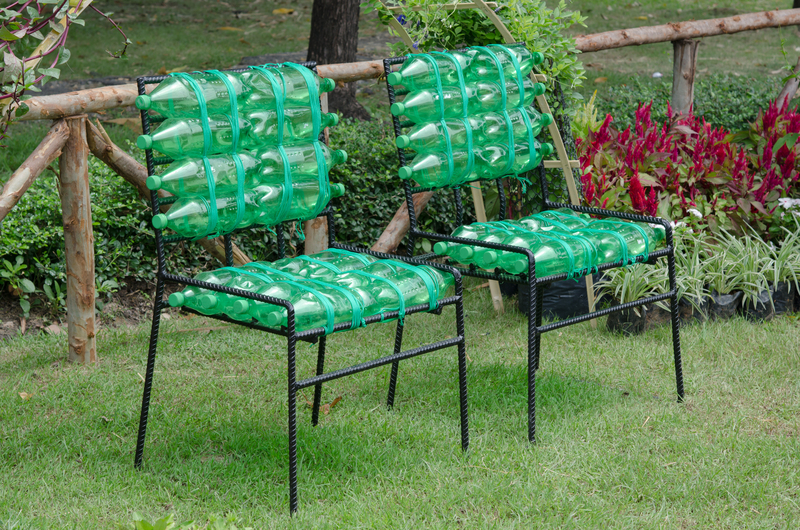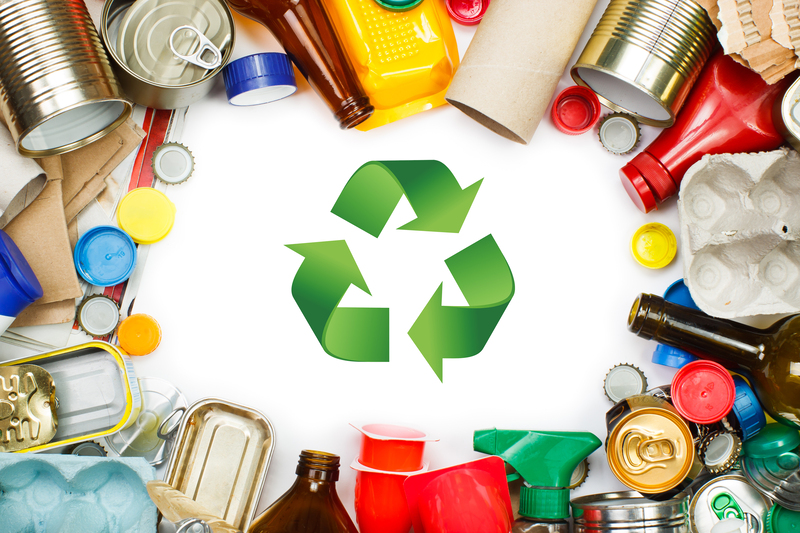How to Avoid Hidden Fees When Disposing of Bulky Waste Items
Bulky waste disposal can be a daunting and potentially expensive task for homeowners and businesses alike. Whether you're getting rid of old furniture, mattresses, household appliances, or renovation leftovers, it's crucial to know how to dispose of these items without incurring unnecessary or hidden fees. This comprehensive guide will teach you how to spot, avoid, and minimize extra costs during bulky waste disposal, ensuring an efficient and budget-friendly process.
Understanding Bulky Waste Disposal Fees
Bulky waste--also referred to as large waste, oversized items, or heavy rubbish--typically falls outside the scope of regular household waste collection. Thus, special arrangements are required, which often come with additional charges. These charges may not always be upfront and can quickly stack up if you're not vigilant.
Common Types of Hidden Fees in Bulky Waste Disposal
- Administrative charges - Booking, processing, or handling fees that may not be mentioned in the initial quote.
- Excess weight or volume surcharges - Fees for overfilling bins or exceeding standard weight/size limits.
- Distance-based fees - Extra charges if your property is far from the disposal facility.
- Special item disposal fees - Hazardous materials, electronics, and appliances often cost more to process.
- Permit or access costs - Certain items or collection methods may require municipal permits.
- Labor and loading fees - If professionals need to move or dismantle items on your premises.
- Late cancellation/booking alteration charges - Fees if you change plans at the last minute.

Tips to Avoid Hidden Fees When Disposing of Large Waste
1. Evaluate Your Bulky Waste Precisely
Begin by clearly identifying the type and amount of large waste you need to dispose of. Use a tape measure to record the dimensions and estimate the weight. Are you dealing with solid wood furniture, whitegoods like old refrigerators, or mattresses? Some disposal services charge per item, per load, or by volume, so precise information will help you obtain accurate quotes and avoid upcharges for "unexpected items."
2. Research Local Regulations and Free Collection Schemes
Many municipalities offer free or subsidized bulky item pickup services for residents, usually on a set schedule or for special types of items. Review your city or county's official website for details. Some regions provide free spring and autumn clean-ups, while others allow residents one or two annual free bulk pickups per household. Use these programs to save on fees.
3. Compare Multiple Waste Disposal Options
- Municipal service: Often the most affordable or free for basic bulky waste, but may have restrictions.
- Private junk removal companies: Offer convenience and comprehensive hauling, but fees vary considerably.
- Skip hire/bins: Good for renovation debris and multiple items, but mind overfill policies.
- Recycling centers/transfer stations: Sometimes free for small loads from residents; charges are usually transparent.
Get itemized quotes from at least three providers. Ask for a full breakdown--including callout, labor, transport, weight/size, and special disposal surcharges--to expose hidden costs up front.
4. Understand What's Included in Your Service Package
Not all disposal options are created equal. Carefully review what's included. Some providers quote only for transport and disposal, leaving out labor for carrying heavy objects or taking items from inside your home. Others may omit recycling fees, fuel surcharges, or taxes.
Tip: Always ask, "Are there any additional fees not shown here? What could cause the final bill to change?"
5. Pre-sort and Prepare Bulky Items
Save on labor and "difficult access" surcharges by bringing bulky items to the nearest convenient pickup location (e.g., curbside or driveway). Disassemble large furniture--remove legs from sofas, take apart bed frames, and bundle loose parts. Ensure all items are easy for crews to move quickly and safely.
6. Avoid Unauthorized Dumping and Fines
Illegal dumping might appear to save money, but it can result in heavy penalties and cleanup fees if you're caught. Always use licensed waste carriers and keep receipts or documentation for safe disposal.
7. Watch Out for Weight Limits and Volume Restrictions
Even reputable companies set strict caps on maximum weight or volume for bulky waste pickup. Overloading can generate substantial extra fees. Read the terms and conditions carefully; mark or separate oversized items for booking accuracy.
- For skip hire: Don't fill beyond the rim. Overfilled bins are either left behind or charged at premium rates.
- For per-load pickups: Ask about the dimensions of a "standard load" and confirm what happens if you exceed those limits.
8. Clarify Hazardous and Special Waste Policies
Appliances containing refrigerants (e.g., fridges, air conditioners), electronics, and items with hazardous materials (batteries, paint, chemicals) incur special disposal fees under environmental regulations. These costs are mandatory but should be disclosed up front.
If you can, remove hazardous components or drop off electronics at authorized recycling facilities to sidestep convenience surcharges charged by "all-in-one" providers.
9. Time Your Disposal
Avoid rush fees by booking in advance. Peak periods--especially spring, summer, and before holidays--see higher demand and prices. Take advantage of off-season promotions and discounts for weekday or early morning bookings.
10. Donate or Sell Usable Items
Non-profit organizations, charities, or second-hand stores may accept unwanted furniture and appliances for free. Some offer complimentary pickups, further reducing waste removal costs. List items in local online marketplaces--Facebook Marketplace, Craigslist, Freecycle, etc.--to see if others can reuse what you're discarding.
Common Pitfalls That Lead to Hidden Fees
Last-Minute Changes
Many providers charge for cancellations or schedule changes less than 24-48 hours in advance. Plan and confirm access (gates, elevators, parking) beforehand to avoid unnecessary rescheduling or callout fees.
Non-Compliant or Unsorted Loads
Mixing garden waste, electronics, or hazardous items with regular bulky household rubbish often attracts sorting surcharges. Always separate waste as instructed or skip provider may refuse collection.
Accessibility Issues
Hard-to-reach items (in basements, attics, tight spaces) may incur extra labor charges. Transporting large waste to curbside can eliminate or reduce these fees.
Uninformed Upgrades
Some companies offer "free" upgrades (e.g., larger bins/trucks) but impose after-the-fact charges if you use more space or weight than agreed. Get all changes recorded in writing and confirm any cost differences before agreeing.
The Benefits of Transparent Bulky Waste Disposal
- Budget certainty - No surprises; you know the real cost upfront.
- Environmental compliance - Proper recycling and disposal reduces your legal liability and environmental footprint.
- Time savings - Professional guidance ensures you only pay for necessary disposal and eliminates unnecessary trips.
- Peace of mind - Knowing you won't be hit by hidden costs provides confidence and allows you to plan ahead.
How to Choose the Right Waste Disposal Partner
1. Check Licensing and Insurance
Always ensure your chosen company is licensed for bulky waste handling and carries sufficient insurance. This protects you against liability in case of mishaps or property damage during removal.
2. Read Reviews and Ask Questions
Genuine customer feedback exposes questionable pricing tactics or hidden fees. Online review platforms and local word-of-mouth will help you select trustworthy providers.
3. Demand Written Estimates
A written, itemized quote is your safeguard. Insist on a contract outlining all fees and potential extra charges.
4. Ask About Sustainable Disposal Practices
Eco-friendly companies often recycle or donate a portion of collected items rather than sending everything to landfill. They may also be more transparent about costs, as proper recycling involves clear fees regulated by authorities.

Summary: Your Bulky Waste, Fee-Free
- Always get detailed quotes and ask about possible extra charges.
- Measure and sort waste to avoid weight or access surcharges.
- Utilize free community collection schemes where available.
- Avoid mixing non-compliant items to prevent sorting fees.
- Recycle, donate, or sell usable items before booking paid disposal services.
- Read all terms--don't sign vague "flat fee" deals.
By following the above strategies, you'll navigate bulky waste disposal like a pro, ensuring your items are removed cleanly, legally, and affordably--without hidden fees eating into your budget.
Frequently Asked Questions: Bulky Waste Disposal Fees
Which items are considered "bulky waste"?
Typically, bulky waste includes furniture (sofas, beds, wardrobes), large appliances (fridges, washing machines), garden furniture, mattresses, carpets, and sometimes construction debris.
Is there a limit to how many bulky items I can dispose of at once?
Most providers or municipal programs have a per-load or per-item limit. Exceeding it may result in extra costs or having to book a second collection.
How can I find free bulky item collection in my area?
Check your local council website's "bulky waste" or "large item pickup" section. Call or email to confirm free or subsidized options and what restrictions may apply.
Can I deliver bulky waste to recycling centers myself?
Yes, if you own a large vehicle or trailer. Many centers allow private residents to dispose of bulky items at low or no cost. Check for opening hours and rules about what can be dropped off.
What documentation should I keep?
Save receipts, weighbridge tickets, or confirmation emails showing safe and legal disposal, especially for appliances or hazardous items.
What if I can't move bulky items myself?
Look for "full-service" removal options that include labor. Confirm access and prep requirements to minimize labor fees. Some charities also offer in-home pickup for donations.
Bulky waste disposal doesn't have to be a financial trap. By being proactive, informed, and organized, you can sidestep hidden fees and ensure your home or business remains clutter-free--while protecting your time, wallet, and the environment.
